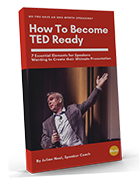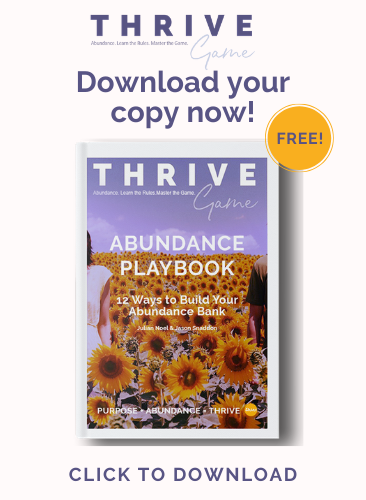There is a biblical saying that goes something like ‘to those whom have much, more will be given’. You may have heard this framed in other ways like ‘you need to have money, to make money’, or, ‘the more you have, the more you get’
Imagine for a moment that it’s a very hot day and you have Little Miss 3 year old wanting you to buy her an ice-cream. But not just any ice-cream! She wants the whopping, 3 scoops, mega sized ice cream cone that is almost bigger than her sweet little face.
She is very insistent and so you succumb to the purchase. Through squeals of delight, she takes passionate licks of the heavily laden cone which is already starting to melt into a puddle down her arm. Before you know it, bammmm …it ends up on the floor. Through tears and tantrums, Little Miss 3 year old demands yet another triple scoop cone. Quite frankly it’s obvious. There’s too much ice cream, it’s too hot, and she’s too little to handle that mega cone effectively.
Funnily enough, the same goes for money. Before you can tackle the colourful triple scoops of cash, you need to learn how to handle the smaller amounts first. Once you can demonstrate to the Universe (and most importantly to yourself) that you can competently control the smaller amounts, you can be trusted to handle larger amounts.
In other words, to those whom have much (and can use it, and control it) the more you can effectively manage and handle the larger wads. And, the idea of “I won’t worry about learning to manage my money until I have bucket loads of cash” is really a hindrance to you ever having more landing on your doorstep and building any real financial stability.
One of the biggest downfalls which prevents people from achieving this is the habitual pattern of spending. We want the ‘3 scoops of ice-cream’, but we are constantly spending. Spending for the simple sake of spending. Spending like money is burning a hole in our pocket. Spending because we like the feeling of an exchange. Spending because the purchase makes us feel good on an otherwise dull day. Spending without even realising that we’re spending. And, spending on ‘stuff’ that we don’t truly need.
As Greg McKeown author of “Essentialism – The Disciplines Pursuit of Less” says we live a life where we are busy doing things that we detest, to buy things that we don’t need, with money we don’t have, to impress people we don’t like! Have you ever asked yourself – Why?
Let’s be clear. This is not about becoming a total scrooge!! Life is all about living and being in the moment. But sometimes we need ‘Pattern Interruptors’ that shake us out of our habitual spending. By becoming more conscious in our spending, we can position ourselves in a way that enables us to build stronger foundations for money growth. As simple as it sounds, it all starts with basic daily disciplines.
This ‘3 scoop’ formula is therefore designed to make you more conscious about whether you are spending for the sake of it, or spending on necessities. It sets you up with some disciplines which will ultimately give you greater control and enable you to effectively handle greater wealth.
1. Start with STOP
If you are a spender who thinks, ‘oh it’s only a couple of dollars’ then your first job is simply to STOP. Stop….. and THINK. As a lot of the purchasing we do is unconscious, this simple action of stopping gives you the chance to bring yourself into a ‘totally present’ mindset. So, before you get to the checkout, ask yourself these questions
Do I want this?
Do I really need this?
Do I have to have this?
Am I just buying this out of habit?
Am I buying this because I am feeling emotional about something else?
Notice what comes up for you as this will start to give you clues about your buying patterns.
2. CHOOSE
There is no choice when you are unconsciously buying. Your behaviour is totally being driven by your habits and belief systems towards money. By making the conscious effort to STOP and THINK, you are bringing your awareness to why you are spending money. Then, and only then, can you truly choose. You choose to spend and deal with the consequence of the money now being gone. Or, you choose to save it for something that will ultimately have greater value to you. If you are still tempted to spend, because you ‘simply must have it’, adopt an “I’ll come back tomorrow” approach. By giving yourself 24 hours, the emotional pull to purchase dwindles and you are giving yourself the space to choose.
3. 1 scoop leads to 3 scoops
By adopting the ‘Stop, Think, Choose’ philosophy you are posturing yourself with the powerful position of control over money. Whilst these small shifts in your behaviour may seem insignificant, they will result in incidental savings. And although these savings may only be small amounts, when leveraged over multiple purchases in a week they rapidly add up. Even with mild disciplined consistency, it is easy to start saving yourself $10, $20, $50 to $100 a week just on incidental purchasing without really even trying too hard!! And from little things, BIG things can grow.
It sounds too simple and it sounds like common sense. All too often though, common sense is not commonly exercised. The beauty about this simple formula is:
- The little actions count
- You don’t feel like you are denying yourself
- It’s totally sustainable
- You are leveraging your conscious free choice, and
- Before long you’ll have a new baseline of what you really need/want/have to have!
Above all of these, you are setting yourself up with new disciplines which are important and the fundamental building blocks you’ll need when we start working with larger sums of cash. And who doesn’t want a triple scoop of ice cream!!







